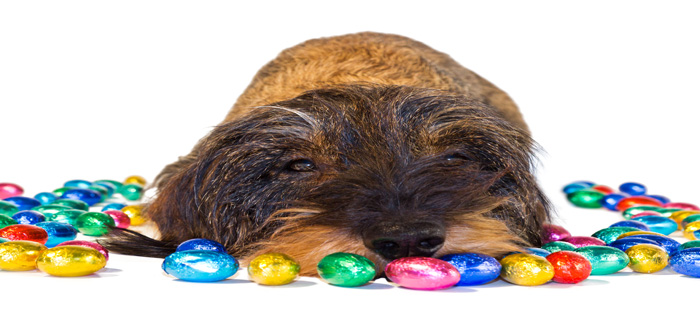The BVA is urging pet owners to keep chocolate treats safely out of reach of inquisitive pets this Easter, as findings released by the association revealed that six in ten (62 per cent) vets working in companion animal practice saw at least one case of chocolate poisoning over Easter holidays last year.
BVA’s Voice of the Veterinary Profession survey shows that the majority of vets still see urgent cases over the festive period because chocolate treats have not been secured out of reach of pets.
While most vets across the UK saw an average of two cases of chocolate poisoning last Easter, around one in eight (13 per cent) treated five or more cases, which is more than double the figure reported over the previous two years. Regionally, incidences of chocolate poisoning remained highest in the south of England.
Chocolate can be highly poisonous to pets, with dogs most commonly affected. It contains theobromine, a naturally occurring chemical found in cocoa beans, which, while safe for humans, is harmful to dogs and other animals.
The level of toxicity depends on the amount and type of chocolate ingested – dark chocolate and cocoa powder are most toxic- as well as the size of the dog, with smaller dogs and puppies being most at risk.
BVA president John Fishwick said: “Easter is a time of great fun for the whole family, but chocolate treats meant for humans can be poisonous for our pets. Dogs in particular have a keen sense of smell and can easily sniff out sweet treats, so make sure any chocolate goodies are stored securely out of reach of inquisitive noses to avoid an emergency trip to the vet.
“If you suspect that your dog has eaten chocolate, don’t delay in contacting your local vet. The quicker the animal gets veterinary advice and treatment, the better.”


